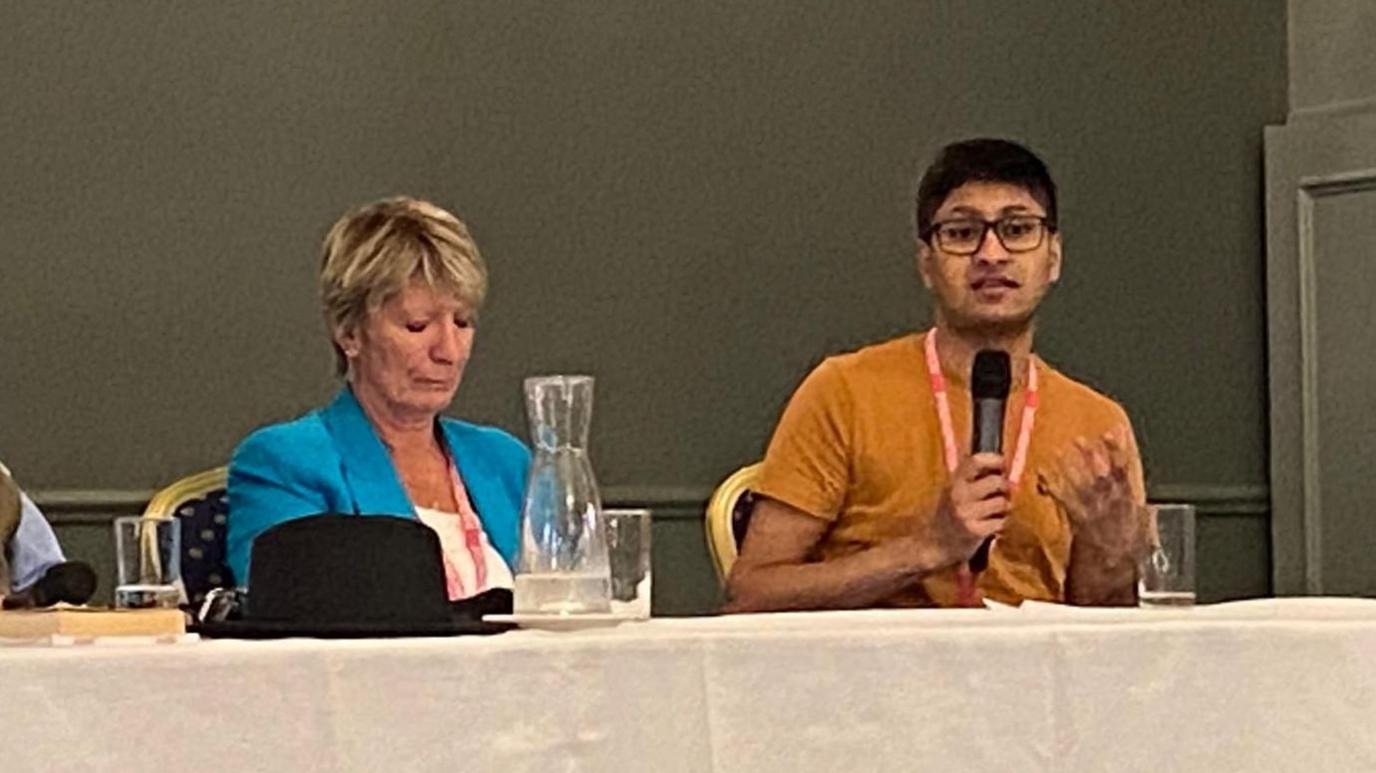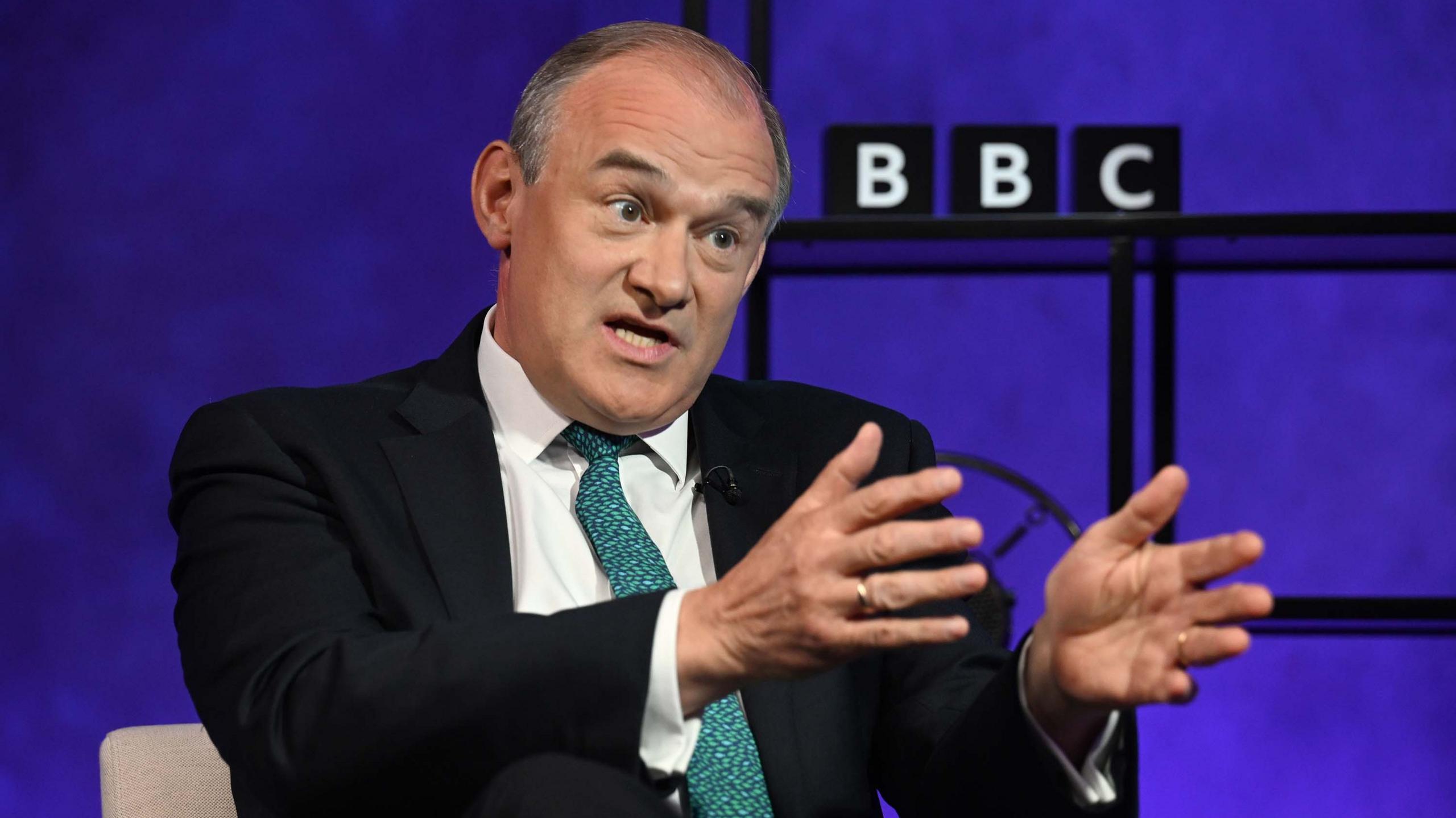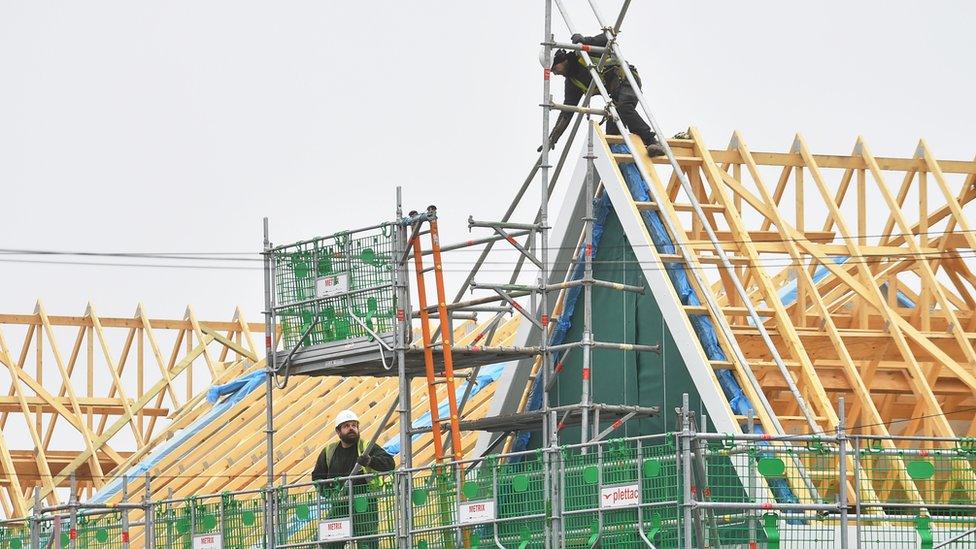Lib Dems: Housing pits Nimbys against Yimbys

Lib Dem leader Ed Davey has denied his party is leading opposition to new homes
- Published
In the debate about building homes and where to put them, you may have heard the term Nimby (not in my back yard).
You may also be familiar with Yimby, a word to describe supporters of new housing, meaning "yes in my back yard".
A new one is Yify, which Lib Dem MP Luke Taylor tested out at his party’s autumn conference this week.
“As Liberal Democrats, we need to be better at saying yes, if,” the MP for Sutton and Cheam said.
“You can say yes to more housing, if we get better local public services. Yes to more homes, if we get better transport links.”
These are some of the awkward phrases and rhetorical somersaults on display at Lib Dem events in Brighton.
For the most part, the Lib Dems appear to be a united political tribe, their spirits buoyed by their newly minted status as the third-biggest party in the House of Commons.
But in the nooks and crannies of this conference, there have been divisions - as there are in any party - and what to do about housing is one of the biggest.
“Whatever we do about house-building is going to take us decades to address the demand for residents,” Taylor said at a fringe event.
The Lib Dem answer to this demand, in its general election manifesto, external, was a target of “increasing building of new homes to 380,000 a year across the UK, including 150,000 social homes a year”.
It was a target the party was going to scrap, with the party’s former leader Tim Farron condemning it as "pure Thatcherism". But at last year’s autumn conference, Lib Dem members defied the party’s leadership by voting to keep it.
Reputation building
The Lib Dems have been accused of Nimbyism for opposing house-building locally. Although Lib Dem leader Sir Ed Davey’s denied his party was a blocker of new homes, it hasn’t been able to shake the reputation.
A few examples suggest why. Charlie Maynard, the new MP for Witney, posted in July, external to say there’s “far too much reliance on housebuilding to grow our economy”. And in 2020, the party’s foreign affairs spokesperson, Layla Moran, opposed plans, external to build almost 11,000 homes in Oxford by 2036.
At one conference event, there was no hiding the tension between the party’s housing targets and local Lib Dem opposition to some developments.
Jamie Rumbelow, whose company Tract build tools to navigate the planning system, said the Lib Dems had shown a “lack of interest” in the specifics of how to build new homes.
He said the Lib Dems needed to “address this leftist form of Nimbyism” to support housebuilding.
Pippa Heylings, the new Lib Dem MP for South Cambridgeshire, agreed that not enough was being doing to build new homes.
But she said the argument needed to move away from Nimbys vs Yimbys, and branded deregulation a “false economy”.

Joshan Parmar, a Young Liberal activist, said “Yimbyism can win”
The youth wing of the Lib Dems was instrumental in forcing the party to keep its 380,000-a-year housebuilding target.
Joshan Parmar, a Young Liberal and director of Lib Dems for Housing, said “Yimbyism can win” and urged his party to unite around that shared idea.
There are signs of sympathy for that strain of thought among the party’s new intake of MPs.
The new MP for Eastbourne, Josh Babarinde, said he had been described as a Yimby. He said he had supported the building of a house in his own back garden.
“The way out of the housing emergency is to build,” he said.
Houses in the wrong places
How the party manages the Nimby and Yimby voices within its ranks of 72 MPs will be one of the subplots of this Parliament.
Could Yify (yes, if) emerge as the fudge to hold both sides together?
Helen Morgan’s take on this gives some clues.
“We support the right development in the right places and have successfully delivered housing across the country - in Kingston, the Cotswolds and Westmorland for example,” the MP for North Shropeshire and the party’s housing spokesperson said.
“But where developers are building houses that are in the wrong places, such as flood planes, or without the infrastructure we need, then we rightly oppose them.
“We support high quality development, but our councillors are right to oppose poor quality plans.”
Related topics
- Published28 June 2024

- Published16 March 2022

- Published25 September 2023
